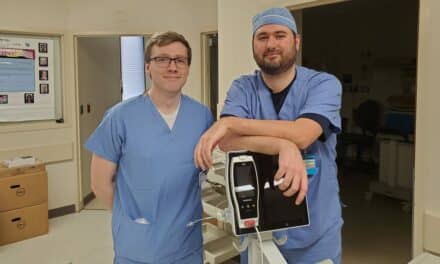With the June 3 deadline fast approaching for the FDA’s comment period regarding medical device repair and refurbishment, AAMI has submitted its own thoughts on the controversial matter. The organization’s 57-page document, consisting of an 18-page letter and various addenda surveying the issue, is posted on its website.
“We are hoping that our factual, big picture comments about the industry help provide context and a deeper understanding of how the entire service industry fits together as a part of the life cycle for medical devices,” AAMI President Mary Logan writes in the letter. “No matter what, at the end of the day the entire industry will be better informed and have much more to think about, simply from reading the perspectives that are offered across this very diverse industry. And, no matter what, at the end of the day it should be clear that everyone has the same end goal: the safety of the patients whose life depends on safe and effective healthcare technology.”
The letter carefully avoids arguing that a particular group take ownership of medical equipment service and repair, and it does not answer the FDA’s detailed questions about service. Rather, asserting its role as “a neutral organization that highly values its…’honest broker reputation,’ ” AAMI acknowledges the various parties and their concerns, finally advocating for consensus-based standards over regulation.
“AAMI in general prefers standards over regulation and believes that consensus-based standards…can solve most technology oriented problems,” the letter notes. “Decisions made by the FDA, working alone, tend to have unintended consequences. Likewise, decisions made by industry or healthcare delivery organizations while working alone in their own silos tend to have unintended consequences. Standards that are developed through an open consensus-based approach—with all stakeholder perspectives represented in the process—tend to solve problems without creating new ones and also tend to build the strongest buy-in from all stakeholders because they contributed to the solution rather than being told what they must do.”
The letter concludes, “Again, AAMI applauds the FDA for taking a conservative approach of requesting information to help it assess the questions asked in the FR Notice….As noted earlier, as is often the case with complex issues that involve multiple disciplines, multiple service models, lack of standardization, paucity of reliable data about the industry, uneven lobbying capabilities across the sector, strong opinions, and stories galore, there is a huge risk of unintended consequences from increased regulation involving healthcare technology.”
To read the full comments, visit the AAMI website.





Ouch! Your site looks great in the Mozilla print preview. My site looks like, well, crap. I see I&;8v17#2e got some work to do. Thanks for the excellent post.